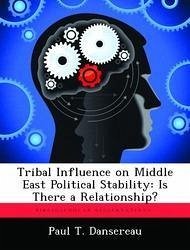Nicht lieferbar

Heart of the Storm: Stabilizing Lebanon in a Turbulent Middle East
Versandkostenfrei!
Nicht lieferbar
Once again, Lebanon stands on the precipice of an all-out civil war. A pro-Syrian faction consisting of Hizballah, Amal and Christians allied with Michel Aoun has been locked in a stalemate since December 2006 with the 'March 14' alliance supporting the pro-Western government of Fouad Siniora over the composition of a tribunal to try suspects in the assassination of former Prime Minister Rafik Hariri and the formation of a "national unity" government. This crisis comes on the heels of the summer 2006 war between Hizballah and Israel, which resulted in the deaths of 1,100 Lebanese and an econom...
Once again, Lebanon stands on the precipice of an all-out civil war. A pro-Syrian faction consisting of Hizballah, Amal and Christians allied with Michel Aoun has been locked in a stalemate since December 2006 with the 'March 14' alliance supporting the pro-Western government of Fouad Siniora over the composition of a tribunal to try suspects in the assassination of former Prime Minister Rafik Hariri and the formation of a "national unity" government. This crisis comes on the heels of the summer 2006 war between Hizballah and Israel, which resulted in the deaths of 1,100 Lebanese and an economic loss estimated at $12 billion. Combined with a stagnant Arab-Israeli peace process and the war in Iraq, the situation in Lebanon is contributing to the overall instability in the Middle East. There are three possible outcomes to the crisis in Lebanon. The first is a continuation of political stasis, leading to a gradual decline in Lebanon's ability to recover from the summer war and make the necessary reforms to become an effective, sovereign state. The second is a fracturing of society along sectarian lines with a resumption of civil war. This scenario would have dire consequences for the region and leave Lebanon as a failed state. The third potential future for Lebanon, arguably the most difficult to achieve, is a stable country ruled by a competent and equitable government that maintains sovereignty over all of Lebanon and realizes the hopes embodied in the Cedar Revolution of 2005. This work has been selected by scholars as being culturally important, and is part of the knowledge base of civilization as we know it. This work was reproduced from the original artifact, and remains as true to the original work as possible. Therefore, you will see the original copyright references, library stamps (as most of these works have been housed in our most important libraries around the world), and other notations in the work. This work is in the public domain in the United States of America, and possibly other nations. Within the United States, you may freely copy and distribute this work, as no entity (individual or corporate) has a copyright on the body of the work. As a reproduction of a historical artifact, this work may contain missing or blurred pages, poor pictures, errant marks, etc. Scholars believe, and we concur, that this work is important enough to be preserved, reproduced, and made generally available to the public. We appreciate your support of the preservation process, and thank you for being an important part of keeping this knowledge alive and relevant.











